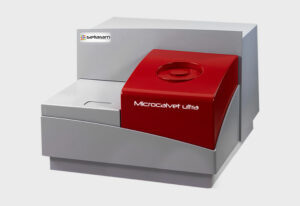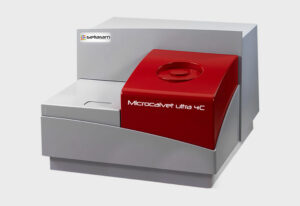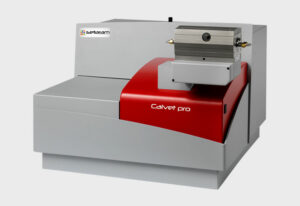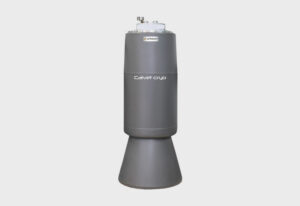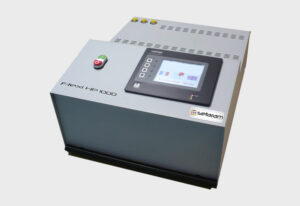Microcalvet: the benchmark microcalorimeter for all your applications
Formerly known as the MicroDSC 7 calorimeter, the Microcalvet is a benchmark in microcalorimetry. Its unique design provides highly accurate measurements of temperature, heat, heat flow or heat capacity. It will meet your needs for characterizing liquids, solids, at sub-ambient temperatures or even at very high pressures.

For Superior Sensitivity
Microcalvet measurements are highly sensitive and accurate thanks to the combination of its 3D sensor and electrical calibration. These 3D sensors are composed of thermoelectric elements surrounding the measuring cells, ensuring full heat detection around the sample. The Microcalvet microcalorimeter features an easy-to-use, flexible cooling system that can operate in sub-ambient conditions down to -45°C.
It can also accommodate a wide variety of cells, each offering specific functions such as mixing, stirring, pressure resistance and pressure regulation. Measurement possibilities are wide-ranging, covering studies on heat capacity, mixing, transitions, reactions of solids and liquids.
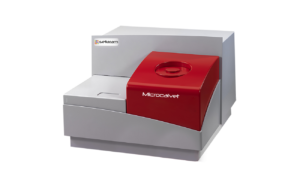
Applications
Microcalvet, Setaram’s most versatile microcalorimeter, offers a wide range of applications:
- Heat storage: Microcalvet is widely used to characterize phase-change materials, barocaloric effects and refrigeration fluids.
- Flow assurance for oil & gas: Microcalvet’s high-pressure cells are ideal for these applications. Studies carried out with Microcalvet help to determine the temperature and pressure conditions required for the formation and dissociation of gas hydrates and waxes.
- Polymers: Conventional DSC is often limited by sample size and the pressure ranges supported. Microcalvet overcomes these limitations with its advanced capabilities.
- Life Sciences: Particular attention is paid to the characterization of some food materials. Microcalvet is essential for analyzing the thermal and physical properties of foods and their constituents.
Why is it Unique?
-
HIGHEST HEAT MEASUREMENT ACCURACY
Calvet 3D sensor based on Peltier elements with Joule effect calibration
-
MODIFIABLE TEMPERATURE CONDITIONS
for increased flexibility and replication of real life conditions between -45 and 120°C
-
CONVENIENT INTERCHANGEABLE CRUCIBLES AND CELLS
to perform even the most demanding experiments using one instrument :
• high pressure (up to 1000 bar) and high vacuum, pressure measurement and control
• mixing/stirring experiments
• combined high pressure and stirring experiments
-
EXTERNAL COUPLING CAPABILITY
designed to increase your research options including manometry, BET instrumentation, gas analyzers, humidity controllers and gas panels
Request a quote
e-commerce website – Access spare parts and consumables online
Our online store offers an innovative solution:
- If you are in France, Germany, Switzerland, or in the USA, you can purchase spare parts and consumables in just a few clicks on our online store.
- If you require delivery to another country, please contact us.

Documentation
Access the most relevant documents about our solutions and their use.
Application notes
- Melting and Crystallization of Phase Change Materials PCM by MicroDSC
- HIGH PRESSURE CHARACTERISATION OF POLYMERS
- Characterization of gas hydrates formation dissociation using high pressure DSC
- Effects of pressure on the Wax Appearance Temperature of crude oils
- AN746-Characterization-of-barocaloric-effect-materials-for-solid-state-refrigeration
Specifications
Technical notes

